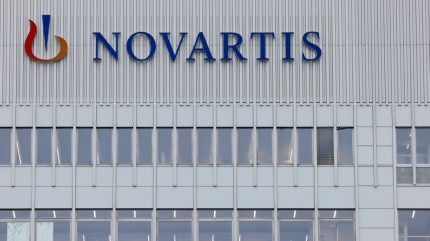EMA pins lack of long-term data as rationale for Novartis’ failed Vijoice bid
14 Mar 2024
Drug ApprovalOrphan Drug

Preview
Source: Pharmaceutical Technology
The European Medicines Agency (EMA) released a report detailing the reasons for the withdrawal of Novartis marketing authorisation application for Vijoice. Credit: Bloomberg via Getty Images.
The European Medicines Agency (EMA) recently released its main concerns with Novartis’ Vijoice (alpelisib) application which led to the company withdrawing its conditional authorisation application for a group of rare genetic disorders last autumn.
In Europe, Novartis was pursuing a label for the treatment of adults and children aged two years and above with severe or life-threatening symptoms of PIK3CA-Related Overgrowth Spectrum (PROS) requiring systemic therapy.
In an updated withdrawal assessment report that was released earlier today (14 March), the EMA explained that the long-term safety profile of Vijoice, especially its impact on growth and development in the paediatric population, is still unknown. Furthermore, it questioned whether the assessment of tumour size was an adequate measure of patient benefit in the group of patients with the target indication.
The US Food and Drug Administration (FDA) approved Vijoice in April 2022 as the first and only treatment for select patients with PROS. In May 2019, the regulator also granted approval to alpelisib, under the brand name Piqray. The treatment was made available for postmenopausal women and men with hormone receptor-positive, human epidermal growth factor receptor-2 negative (HR+/HER2-), PIK3CA-mutated advanced or metastatic breast cancer.
PROS are a group of genetic disorders in which mutations occur in the PIK3CA gene, causing overgrowth of certain body parts. Vijoice treats the condition by inhibiting the PI3K/Akt signalling pathway.
See Also:
Novartis exercises option to acquire IFM Due for $835m

Preview
Source: Pharmaceutical Technology
Novartis files patent for combination therapy for b-cell lymphoma with CD19 car and BCL2 inhibitorBCL2 inhibitor

Preview
Source: Pharmaceutical Technology
In October 2023, Novartis withdrew its EU marketing authorisation application for Vijoice following an EMA evaluation. At the time of withdrawal, the agency reported concerns that the clinical data, provided from the EPIK-P2 study (NCT04589650), was not sufficient in demonstrating the exact effect of the medicine on tumour size and whether patients experienced significant reductions in tumour size.
In a letter to the EMA released in the same month, Novartis had also expressed the need to acquire further data to support the drug’s benefit/risk assessment. Novartis submitted the initial application based on real-world evidence from a retrospective chart review study. However, the Swiss company was unable to answer all questions from the Committee for Medicinal Products for Human Use (CHMP) within the necessary timeframe. At the time, the Swiss company announced intentions to submit a new marketing authorisation application once it collects new data.
The EMA designated the drug as an orphan medicine on 26 March 2021 for the treatment of PROS. In the EU, there are currently no disease-modifying treatments available for PROS.
For more details,please visit the original website
The content of the article does not represent any opinions of Synapse and its affiliated companies. If there is any copyright infringement or error, please contact us, and we will deal with it within 24 hours.
Organizations
Indications
Targets
Hot reports
Get started for free today!
Accelerate Strategic R&D decision making with Synapse, PatSnap’s AI-powered Connected Innovation Intelligence Platform Built for Life Sciences Professionals.
Start your data trial now!
Synapse data is also accessible to external entities via APIs or data packages. Leverages most recent intelligence information, enabling fullest potential.





